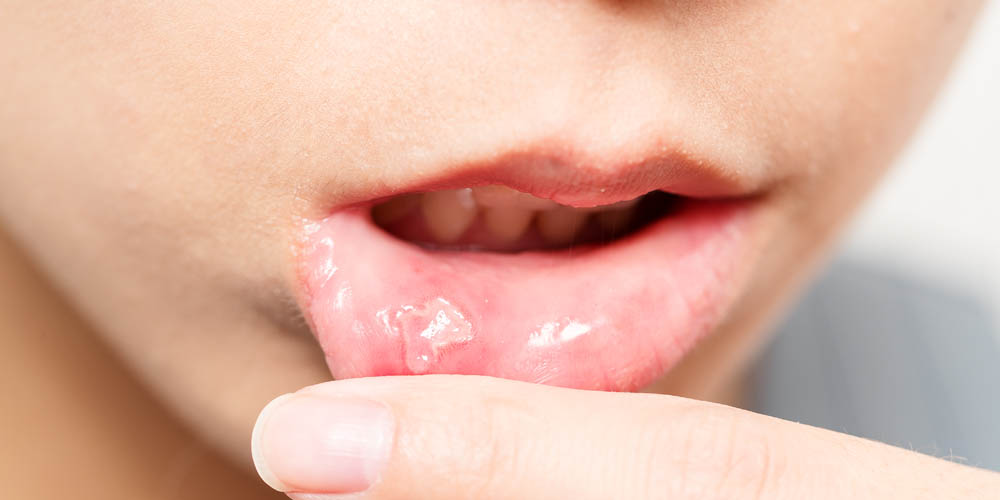The Most Common STDs People Don’t Realize They Have
Quick Answer: Herpes is often misdiagnosed or missed entirely, especially when symptoms look like razor burn, ingrown hairs, or nothing at all. Many cases go undetected by standard testing methods.
When Silence Is a Symptom Too
It started with an itch. That’s all.
“I thought maybe I shaved too close,” said Kelsey, 24. “There was a tiny bump, kind of red, but not painful. No fever. No discharge. It went away in a few days, and my doctor told me it was probably an ingrown hair.”
But the bump came back, same spot, two months later. This time with a weird tingling she couldn’t explain. Kelsey asked her doctor again. They swabbed it for herpes. The results came back negative.
“I felt crazy. I’d been with one new partner, always used condoms, and the test said I was fine. But something didn’t feel right.”
It wasn’t until a third flare-up, this time with groin pain and swollen lymph nodes, that another provider ran a blood test. It came back positive for HSV-2. Kelsey had been living with genital herpes for at least a year. She just didn’t know it. And neither did her doctors.
Herpes doesn’t always “announce itself.” For many people, the symptoms are so subtle, or so easily confused with everyday things, that they never think to question it. A 2022 CDC report estimates that over 87% of people with genital herpes don’t know they have it.
Some only get a small red bump that fades. Others feel nothing at all but carry the virus for years. It’s not uncommon for doctors to mistake early herpes symptoms for:
• Razor burn
• Heat rash
• Folliculitis
• Allergic reactions
• Recurrent yeast infections
• UTIs without bacterial presence
In one peer-reviewed study in the journal Sexually Transmitted Diseases, clinicians misdiagnosed herpes as something else in over 38% of cases where symptoms were present. Even more disturbing? The most common mistake wasn’t a missed diagnosis, it was telling the patient that everything looked “normal.”
“I kept being told it was irritation from my underwear,” said Jay, 29. “I knew it wasn’t. But it took me three different doctors to get someone to take it seriously.”

People are also reading: That UTI Might Be Chlamydia, Here’s How to Know for Sure
This Isn’t Just Razor Burn, And Here’s Why
Here’s where it gets complicated. Herpes doesn’t behave the same way in everyone. That’s part of what makes it so easy to miss. Some outbreaks are painful and obvious, with blister clusters and flu-like symptoms. Others are far more muted, a single red patch, a bit of tingling, maybe a headache. And then? Nothing for months.
In people with vulvas, herpes can occur internally, where symptoms might not be visible. In men, it can appear along the shaft or base of the penis and look like eczema or a shaving nick. For anyone shaving or waxing, the line between grooming irritation and viral activity can get dangerously blurred.
Even doctors miss it. Especially when the patient is young, female-presenting, or LGBTQ+. In a 2023 study from The Lancet, providers were 2.4 times more likely to delay STD testing for women who presented with mild symptoms compared to men who reported the same complaints. That delay led to longer transmission windows and emotional fallout.
So no, it’s not just razor burn. And no, you’re not being paranoid if you think something feels off.
“You’d know if it was herpes.” That’s what Alex, 22, heard from their campus health center. They went in for a painful bump after a hookup and were told it was an ingrown hair. No test was offered.
But herpes doesn’t always follow the textbook. And here’s the kicker: most people with herpes don’t get classic sores. A study published in JAMA Dermatology found that only 12–15% of symptomatic HSV-2 cases presented with blisters. The rest showed up as redness, discomfort, or vague skin irritation. Many patients had no lesions at all.
Blood tests? Not foolproof either. If you’re newly infected, your body might not have developed detectable antibodies yet. That’s why false negatives are common in the first few weeks. Swab tests can also miss outbreaks if not timed precisely or collected properly.
So the idea that herpes always “looks like herpes” is outdated. It’s a myth that costs people time, relationships, and peace of mind.
Part of the problem lies in how herpes is taught, and tested. Most physicians still rely on visual exams and patient self-reporting. If you don’t say you think it’s herpes, they might not even suggest a test. And if you do ask for one, they may order a swab that’s only accurate during an active outbreak.
According to CDC guidelines, routine screening for herpes isn’t recommended unless symptoms are present. That means even if you go in asking to be “tested for everything,” herpes might not be included. Yes, really.
There’s also the stigma factor. Some doctors hesitate to offer herpes testing unless you push for it. They assume patients would rather not know. Others, still under-trained on current sexual health realities, downplay patient concerns, especially if you’re young, queer, or non-monogamous.
“I told my provider I had new partners and something felt different,” said Romy, 31. “She said it looked fine and didn’t even swab it. I only found out later, when my partner got diagnosed and told me to check again.”
That delay cost Romy a relationship. It also nearly caused a severe secondary infection.
“By the time I got retested, I had open lesions and couldn’t sit down without pain,”
When Testing Fails You
Let’s talk testing, because herpes doesn’t make it easy. Swab tests are only reliable during an active outbreak, and even then, technique matters. The sore has to be open, fresh, and properly swabbed. And if the doctor brushes it off as “irritation”? No swab, no diagnosis.
Blood tests, usually IgG antibody tests, aren’t perfect either. They take weeks to turn positive and aren’t great at identifying HSV-1 versus HSV-2. According to the CDC, false positives can occur, especially in low-risk populations, while false negatives are also possible in early infections.
Many people end up in limbo. One doctor says it’s nothing. Another says maybe. Your symptoms fluctuate. You Google obsessively. You feel like you’re spiraling. And all the while, if it is herpes, you might be spreading it unknowingly.
“I spent three months thinking I was being paranoid,” said Lydia, 26. “My tests were negative, and my doctor dismissed me. But I kept getting the same nerve pain and itching in the same place. I finally did an at-home herpes test, and that’s how I found out.”
The stigma around herpes doesn’t just exist in bedrooms and online forums, it’s alive in exam rooms. A 2023 survey from the National Coalition for Sexual Health found that nearly 40% of providers felt “uncomfortable” discussing herpes diagnosis with patients, particularly if they didn’t display typical symptoms.
That discomfort leads to avoidance. Dismissiveness. Misinformation. And silence. Patients internalize that silence and stop advocating for themselves. They stop asking for second opinions. They ghost partners out of fear and shame. They live with the virus without ever having a name for it.
“My doctor literally said, ‘Well, even if it is herpes, it’s not a big deal.’ Then why couldn’t he just say it out loud?” asked Lee, 35. “I felt like I had to figure everything out on my own.”
Stigma leads to silence. Silence leads to spread. Spread leads to more shame. It’s a vicious cycle, and it’s time to end it.

People are also reading: Hepatitis C Symptoms: Gender Differences You Should Know
You Deserve: Sex-Positive, Science-Based Answers
If this article feels uncomfortably close to your own experience, you’re not alone. You’re not dirty. You’re not broken. And you’re definitely not overreacting.
Maybe it’s a bump that didn’t go away. Maybe you tested negative but still feel off. Maybe a doctor dismissed your concerns and now you don’t know what to believe. What you need, what you deserve, is clarity. Not judgment.
Herpes is incredibly common. It’s manageable. It doesn’t define you. And most importantly? You can get tested privately and accurately from home, without shame, waiting rooms, or gatekeeping.
Rapid at-home kits are discreet, doctor-reviewed, and ship in unmarked packaging. Some even allow you to collect samples during symptoms, when swab accuracy is highest. Others offer blood-based testing for those with less visible signs. No lectures. No eye rolls. Just information.
So if something feels off? Trust your gut. Don’t wait for the “perfect” outbreak. Don’t accept silence from the people you’re trusting with your body. You don’t need permission to take care of yourself.
There’s a subtle cruelty in being told you’re “overreacting” when your body is screaming otherwise. For people with vulvas in particular, this is a recurring theme, being dismissed, disbelieved, or told that minor symptoms are “just hormonal.”
But the truth is, it doesn’t take visible blisters or severe pain to justify a second opinion. You’re allowed to investigate a weird tingle, an unexplained itch, or a bump that doesn’t behave like a typical ingrown hair. These aren’t “little things.” They’re signals. And you’re allowed to listen.
Even if it turns out not to be herpes, your attention isn’t wasted. Self-awareness is protection. So is asking for a better test, or choosing to test at home instead. Being cautious doesn’t make you paranoid. It makes you informed. And in a world that routinely misses STDs in their early stages, that’s power.
Let’s Talk About Partners
If you’ve already been diagnosed, or if you’re just suspicious and worried, it can feel terrifying to bring it up with a partner. But honesty isn’t just ethical. It’s an act of love. A way of saying,
“I care enough about you to keep you safe. And I care enough about me to not hide.”
Herpes is common. Most people who test positive got it from someone who didn’t know they had it. That’s not blame, it’s reality. And it’s why this conversation matters.
When you’re informed, you can reduce transmission risk dramatically. Daily antiviral medications lower the chance of spread. Condoms help too, especially during symptoms. And with clear communication, many people feel closer, not farther apart, after talking honestly about sexual health.
It doesn’t have to be dramatic. It can be: “Hey, I’ve had some weird symptoms and I’m planning to test just to be sure. I want to be upfront because your health matters to me too.” That’s it. That’s care.
You’re Not the Exception. You’re the Majority.
Herpes isn’t rare. It’s not gross. It’s not a punishment. It’s not proof that you made a mistake. It’s just a virus, one that nearly 1 in 6 adults in the U.S. carry, according to CDC data. And yet, because it’s so misunderstood, it often feels like a sentence. Like a scarlet letter. Like the thing that makes you “less than.”
But it’s not. It doesn’t change your worth. It doesn’t cancel your sex life. It doesn’t mean you’re dirty, reckless, or broken. If anything, going through misdiagnosis, testing, and finally finding out the truth? That means you’re brave. That means you’re persistent. That means you’re healing, even if it hurts right now.
And the good news? Once you know, you can manage it. Meds work. Outbreaks lessen. Relationships survive. Sex still happens. Love still grows. And life goes on, often with more honesty, more boundaries, and more self-respect than before.
FAQs
1. I had a bump once, but it went away, could that have been herpes?
Maybe. That’s the tricky part. Herpes doesn’t always scream for attention. Sometimes it whispers, just a small red spot, a little itch, and gone before you even decide to Google it. But if it keeps coming back in the same spot? That’s your clue. Herpes likes patterns.
2. Why didn’t my STD test include herpes?
Because testing guidelines are outdated, and some providers assume you’d rather not know. Seriously. Unless you ask specifically, herpes isn’t part of the standard panel. So if you said “test me for everything,” and didn’t get swabbed or pricked for herpes? You might not be as “cleared” as you thought.
3. Can doctors actually miss herpes?
All the time. Especially if you don’t have the classic blisters or if your symptoms look like razor burn, yeast, or eczema. And if you’re young, femme, or queer? You’re even more likely to be dismissed. That’s not okay, but it is reality. That’s why self-advocacy (and sometimes second opinions) matter.
4. What’s the difference between herpes and an ingrown hair?
Ingrown hairs usually have a visible point or feel kind of sore when pressed. Herpes bumps are often softer, may tingle, and can show up in clusters, or solo. But here’s the real giveaway: herpes often cycles. If that “ingrown” keeps coming back in the exact same place? Time to test.
5. My test came back negative, but I still have symptoms. What now?
Don’t gaslight yourself. Swab tests only work if you’re actively having symptoms, and even then, timing and technique matter. Blood tests take time to turn positive. If your gut says something’s off, trust it. Try a second test, preferably at-home and symptom-aware. You’re not being dramatic. You’re being thorough.
6. Is oral sex really enough to give someone herpes?
Absolutely. HSV-1 (the cold sore virus) causes more and more genital infections these days, especially from oral sex. Someone might not even have a visible cold sore when they transmit it. That’s why saying “we didn’t have sex, just oral” doesn’t mean you’re risk-free.
7. Can herpes show up years after I caught it?
Yep. It can stay dormant for months, or even longer. Some people get infected in their teens and don’t see symptoms until their 30s. Stress, illness, or hormonal changes can activate it. So if your first outbreak comes “out of nowhere,” it may not be as new as you think.
8. Is it worth telling my partner if I’m still not sure it’s herpes?
That depends on your relationship, but honesty builds trust, even if it’s messy. Saying “Hey, I’ve had some odd symptoms, and I’m getting tested to be safe” is a strong move. It’s not an admission of guilt. It’s a show of care. Most people appreciate that more than silence.
9. Will herpes ruin my sex life?
Nope. It might force better communication and more honesty, but sex itself? Still hot, still happening, still yours. Plenty of people with herpes have thriving sex lives, and relationships that got deeper because of it. Condoms, meds, and mutual respect go a long way.
10. So… should I test even if I’m not having symptoms right now?
If you’ve had a new partner, or a weird episode that’s nagging you, or you just want peace of mind? Yes. Herpes doesn’t always make itself obvious. And honestly, relief comes faster from testing than it ever will from doomscrolling.
Testing Is Care, Not Shame
Let’s rewrite the narrative: testing isn’t a sign that something’s wrong. It’s a way of taking care of yourself and your partners. It’s a ritual of accountability, not a mark of promiscuity. It’s no different than checking your blood pressure, your cholesterol, or your mental health.
Herpes, in particular, gets tangled in shame because it’s so visual, and yet often invisible. It lives in the spaces between sex and stigma, between hookup culture and healthcare neglect. But it doesn’t have to live in silence.
You can choose visibility. You can choose clarity. You can choose to order a discreet, rapid herpes test and find out what’s really going on, without leaving home. You don’t need a doctor’s approval to value your body. You don’t need a “real” outbreak to get real answers.
Most of all, you don’t need to carry this alone.
Sources
1. Flawed herpes testing leads to many false positives — and needless suffering – STAT News
2. ASHA Survey Shows Many Herpes Patients Diagnosed Incorrectly – American Sexual Health Association
3. Here’s Why Doctors Don’t Usually Test for Herpes – SELF
4. Genital herpes: The painful facts about a tricky virus – Harvard Health
5. 6 Things You Need to Know About Herpes Tests, According to Doctors Who Administer Them – Allure







